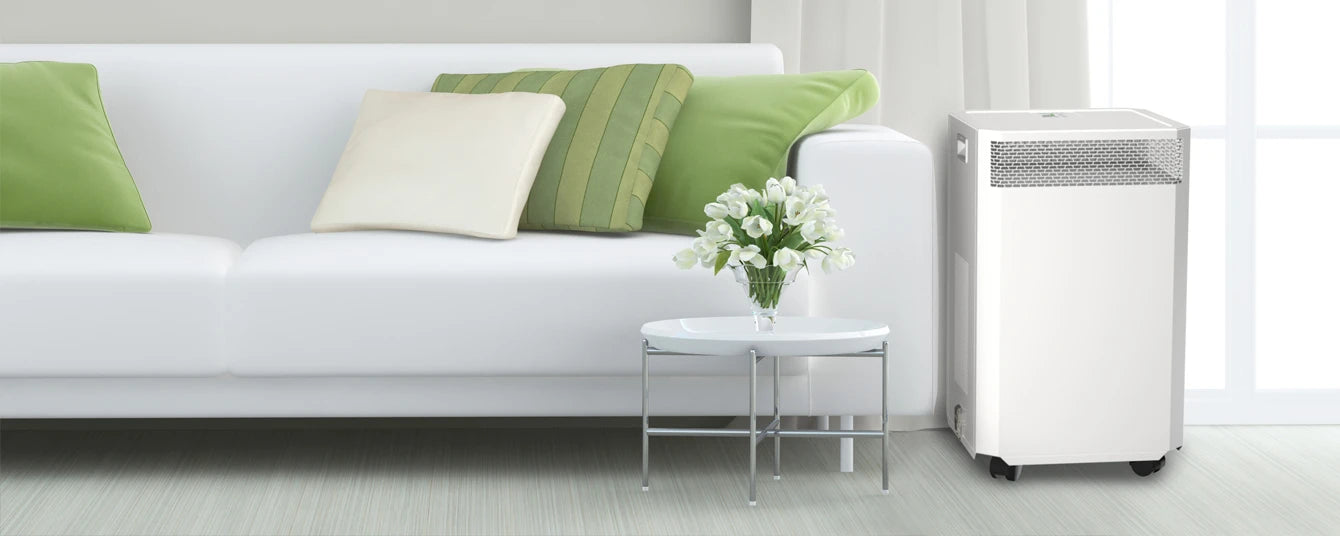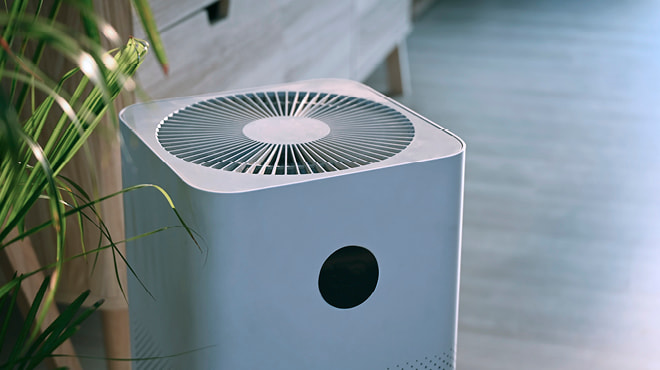Featured
Table of Contents
- – Comprehending Allergies and Triggers
- – Can Air Purifiers Assist With Allergies?
- – The Scientific Research Behind Air Purifiers ...
- – Are Air Purifiers Right for You? Elements to ...
- – Maximizing Air Purifiers for Allergies
- – Beyond Air Purifiers: A Multi-Pronged Approach...
- – Living a Breath Easier Life with Allergies

Air cleansers are typically touted as a remedy, appealing cleaner air and alleviation from allergy signs and symptoms. Are air cleansers truly worth the investment for allergic reaction patients?
Comprehending Allergies and Triggers
To comprehend the function of air cleansers, let's very first look into allergies and their triggers:
- The Allergic Feedback: Allergies occur when your body immune system panics to a harmless material, like plant pollen or allergen. This response triggers the release of histamines, causing allergic reaction symptoms like sneezing, coughing, itchy eyes, and a dripping nose.
- Usual Irritants: Indoor allergens consist of allergen, pet dander, mold and mildew spores, plant pollen that drifts inside your home, and also roach allergens. These airborne fragments can aggravate your respiratory tracts and activate allergic reaction symptoms.
Can Air Purifiers Assist With Allergies?
Air cleansers function by drawing in air, removing toxins, and launching cleaner air back into the area. Right here's exactly how they can potentially profit allergy sufferers:
- Trapping Allergens: HEPA (High-Efficiency Particulate Air) filters, an usual kind used in air purifiers, are extremely reliable at capturing airborne allergens like dust mites, pet dander, and plant pollen. By getting rid of these triggers from the air you take a breath, air purifiers can aid lower allergic reaction signs and symptoms.
- Improved Air Top Quality: Air cleansers can also remove various other toxic irritants from the air, such as smoke, dust, and unpredictable natural compounds (VOCs) This total renovation in air high quality can be advantageous for allergy sufferers who are sensitive to these added triggers.
The Scientific Research Behind Air Purifiers and Allergies
Research studies have actually revealed that air purifiers can be useful in reducing allergy signs. Here's a check out some key research study searchings for:
- A 2019 testimonial released in the journal "Present Allergic reaction and Bronchial asthma Records" concluded that air cleansers with HEPA filters can be efficient in minimizing allergy signs and improving lifestyle for people with hay fever (hay high temperature)
- A 2018 study published in the journal "Annals of Allergy, Asthma & Immunology" located that making use of an air purifier with a HEPA filter in the bed room dramatically decreased dust mite allergen levels and improved sleep top quality in people with bronchial asthma.
Nevertheless, it is very important to note that research also suggests some limitations:
- Air Purifier Insurance Coverage: Air cleansers are most reliable in the room where they are positioned. Their influence on allergens in other components of the residence may be minimal.
- Intensity of Allergies: While air cleansers can aid, they could not be a complete solution for extreme allergies. Medicines and other allergic reaction monitoring strategies could still be essential.
Are Air Purifiers Right for You? Elements to Consider
Below are some vital factors to think about when making a decision if an air purifier deserves it for your allergic reactions:
- Extent of Allergies: If your allergic reactions are light and well-controlled with medication, an air purifier might not be required. For those with moderate to serious allergic reactions, an air purifier can be a useful device in handling signs and symptoms.
- Sorts of Allergens: Consider the main triggers for your allergic reactions. Air purifiers are most effective for air-borne irritants like dust termites, pet dog dander, and plant pollen. They may not be as practical for irritants like mold that expand on surfaces.
- Way of life and Setting: If you have pets, live in an area with high plant pollen matters, or have issues about indoor air quality, an air purifier can be useful.

Maximizing Air Purifiers for Allergies
If you decide to buy an air purifier for allergies, here are some suggestions for optimizing its performance:
- Choose a HEPA Filter: Seek an air purifier with a HEPA filter certified to catch particles as little as 0.3 microns.
- Right Size for the Area: Ensure the air purifier has a Clean Air Delivery Rate (CADR) that is appropriate for the dimension of the room you plan to utilize it in.
- Placement Issues: Place the air purifier in the area where you spend the most time, such as your room.
- Normal Filter Maintenance: Replace HEPA filters according to the supplier's guidelines to preserve optimal performance.
- Incorporate with Various Other Approaches: Air purifiers are not a one-size-fits-all remedy. Integrate them with various other allergy monitoring techniques like medicine, routine cleansing, and allergen-proof bed linens.
Beyond Air Purifiers: A Multi-Pronged Approach to Allergy Management

While air cleansers can be a valuable device in your allergy arsenal, they are not a wonder drug (If you're looking to buy an Air Purifier then Air Cleaners Australia is the best destination.). An extensive method that integrates air filtration with various other techniques is vital to attaining long-term allergy relief. Here are some added techniques to take into consideration:
- Medication: Antihistamines, decongestants, and nasal corticosteroids, prescribed by your physician, can effectively handle allergic reaction symptoms.
- Allergic Reaction Screening and Immunotherapy: Identifying your certain irritants with allergy screening can pave the way for immunotherapy, a therapy that aids desensitize your body immune system to allergens in time.
- Air Top Quality Management: Regular cleansing with a HEPA-filtered vacuum and allergen-specific cleansing items can dramatically decrease dirt termites, animal dander, and various other allergens in your house.
- Managing Humidity: Mold and mildew grows in humid environments. Making use of a dehumidifier can aid manage humidity degrees and avoid mold and mildew development, an usual indoor irritant.
- Way of living Adjustments: If you have hatreds plant pollen, remaining inside your home throughout top pollen seasons and bathing after hanging around outdoors can help decrease direct exposure.
- Bed linens and Surfaces: Framing cushions and bed mattress in allergen-proof covers can substantially decrease allergen direct exposure. Consistently cleaning bed linen in warm water aids get rid of irritants.
Living a Breath Easier Life with Allergies
Remember, taking care of allergies is a constant procedure. By understanding your triggers, applying a multi-pronged approach, and potentially incorporating an air purifier into your technique, you can significantly decrease allergic reaction signs and symptoms and take a breath simpler.
Added Factors To Consider:
- Consulting a Medical professional: If your allergies are serious or not well-controlled with drug and lifestyle changes, seek advice from an allergist for customized suggestions.
- Air Top Quality Surveillance: Think about using an air quality display to track allergen levels in your home and readjust your administration methods appropriately.
- Long-Term Financial investment: A high quality air purifier can be a long-term investment in your health and wellness.
By taking a positive method and taking on a mix of these techniques, you can produce a healthier and allergy-friendly setting, enabling you to enjoy a breath less complicated life.
Table of Contents
- – Comprehending Allergies and Triggers
- – Can Air Purifiers Assist With Allergies?
- – The Scientific Research Behind Air Purifiers ...
- – Are Air Purifiers Right for You? Elements to ...
- – Maximizing Air Purifiers for Allergies
- – Beyond Air Purifiers: A Multi-Pronged Approach...
- – Living a Breath Easier Life with Allergies
Latest Posts
Comprehending the Transition: Why Hornsby is Phasing Out Gas
Comprehending the Shift: Why Pymble is Phasing Out Gas
The Best Guide To Is Dishwashing Yeti Ramblers A Safe Bet?
More
Latest Posts
Comprehending the Transition: Why Hornsby is Phasing Out Gas
Comprehending the Shift: Why Pymble is Phasing Out Gas
The Best Guide To Is Dishwashing Yeti Ramblers A Safe Bet?